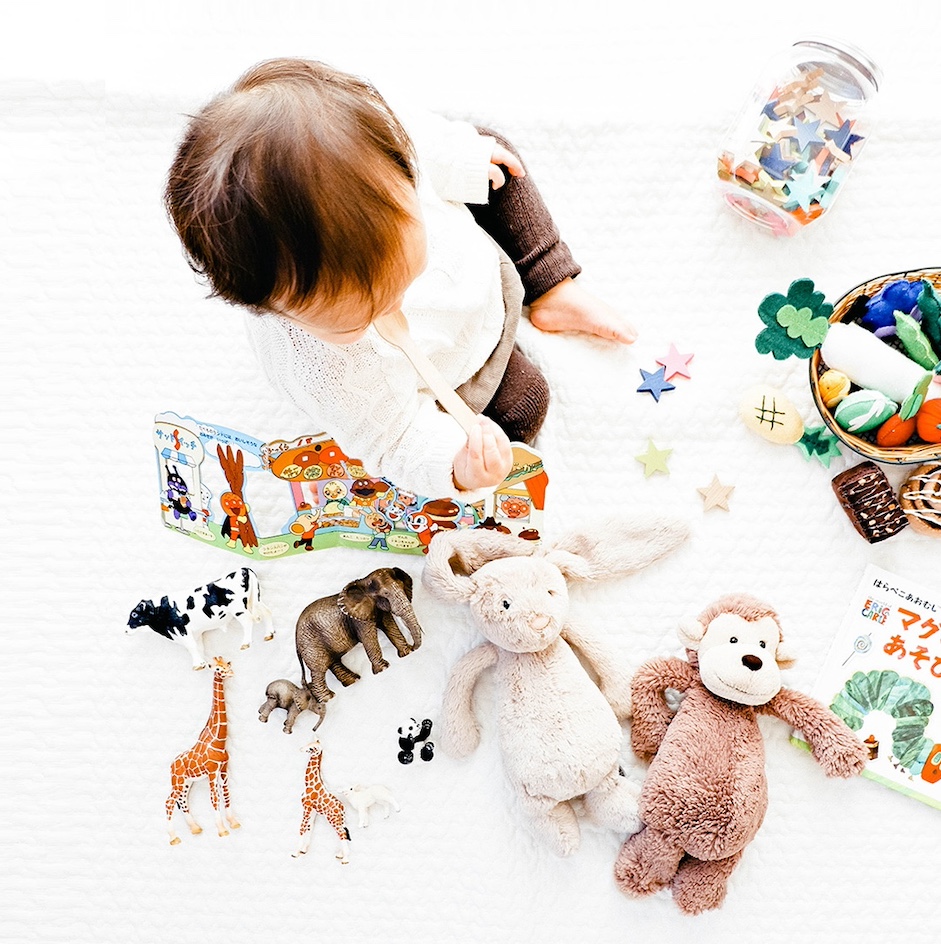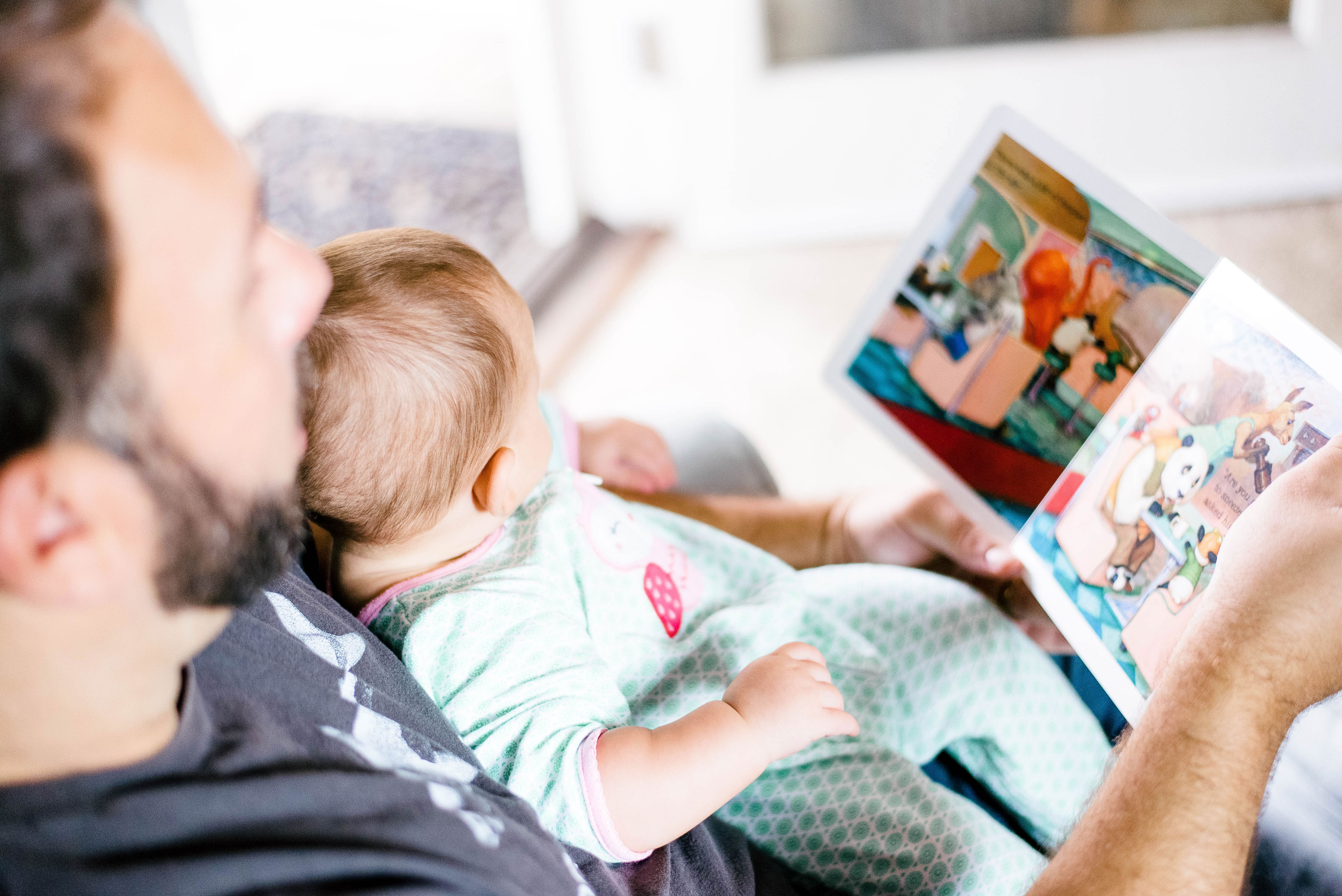“Regulation (of the nervous system) does not mean to calm; it means to connect.” – Lisa Dion
Co-regulation, once a term used mainly by psychologists and child development experts, is gaining popularity among parents. It entails a caregiver actively helping a child navigate their emotions and behaviors. As an occupational therapist, I frequently use co-regulation to support my clients through challenging moments, and coach parents how to use it in supporting their child’s ability to self-regulate. While co-regulation is straightforward and beneficial for all types of relationships, mastering it can be challenging.
The Roots of Co-Regulation
From the moment they enter the world, babies are in a state of complete reliance on their caregivers to meet their every need. This dependency isn’t just about meeting physical needs, but emotional needs as well. As caregivers, we quickly become adept at interpreting our baby’s cries and cues, understanding whether they signal hunger, tiredness, or discomfort. This process, where caregivers support their infants’ regulatory needs through responsive, attuned interactions, is known as co-regulation. It is through co-regulation, that we ensure our infants feel secure and can navigate the flood of sensations and emotions they experience. It doesn’t stop in infancy, it’s a dynamic process that evolves as the child grows, adapting to their changing needs and increasing capacity for self-regulation.
From Co-Regulation to Self-Regulation
Co-regulation serves as the scaffold for self-regulation, a critical skill that enables children to engage with the world around them effectively. Self-regulation supports a child’s ability to be present and engaged for learning, interact socially, and manage their emotions and actions. Unlike a skill that can be directly taught, self-regulation is developed through lived experiences and nurtured within attuned relationships. It’s a journey that continues into young adulthood, with the mid-20s often cited as the point of maturity.
The essence of co-regulation lies in its ability to create a sense of safety for the infant or child. It helps them learn to tolerate and understand their internal and external experiences, which may be entirely new, misunderstood, and/or overwhelming. This process of mutual emotional support and understanding fosters a sense of connectedness and security, enabling children and their caregivers to navigate challenges and stressors more effectively together.
According to the psychologist Stuart Shanker, “a shared state of calmness results when we reframe another’s behaviour and identify and reduce their stresses.”
The Practice of Co-Regulation
Before we can effectively co-regulate our child through their distress, we must first look at our own capacity for self-regulation. We cannot calm another person when we ourselves are dysregulated. We must pay attention to our own feelings and reactions, pay attention to our thoughts and beliefs about what is happening, and use regulatory strategies to keep ourselves calm.
When your child is distressed, use these strategies as part of your co-regulating response:
- Connect: Give your child your complete attention, including eye contact and focused posture. Be close to your child. You cannot co-regulate another person from across the room.
- Affect: Refers to how your tone and expressions convey your emotions. When your child is upset, mirror their emotions carefully. If they are distraught or crying, present with a more muted expression of their feelings.
- Listen & Validate: Show your child you are Listening by voicing their feelings as if you were in their place. Resist the temptation to voice their feelings from a distance. For example, “I understand that you didn’t like that…” This doesn’t help them feel heard or understood. Instead, join their feeling “you were having so much fun and weren’t ready to be all done!”
- Wait: Wait and give your child time to take in your gestures and intonations. Co-regulation requires patience. Allow your child to process his feelings at his own pace.
- Engagement: Before you continue, be sure you have engaged the child. Your child’s facial expressions, sounds and body language will tell you if he/she is engaged.
Embracing Imperfection in Co-Regulation
Despite our best efforts, achieving perfect co-regulation is unrealistic. Mistakes are part of the learning process, and it’s important to remember that perfection is not the goal. In fact, research suggests that getting it right about 30% of the time is sufficient for positive developmental outcomes. What matters most is the commitment to being responsive and attuned to your child’s needs and fostering a secure and supportive environment for their growth. Self-regulation is like a developmental bank account. Consider each successful co-regulated moment as a deposit, accumulating over time to build the emotional reserve a child can draw on in times of stress.
SensAble Kids and Co-Regulation
Navigating the complexities of parenting a child with regulatory challenges can feel overwhelming. At SensAble Kids, we understand these challenges intimately. It’s not just about offering strategies; it’s about walking alongside you, empowering you, and celebrating each step forward. If you feel the need for expert guidance and support in nurturing your child’s regulatory abilities and/or learning how to co-regulate your child, reach out to SensAble Kids today.
Looking for more resources? Feel free to share your email with us if you’d like to receive additional content and resources.





0 Comments